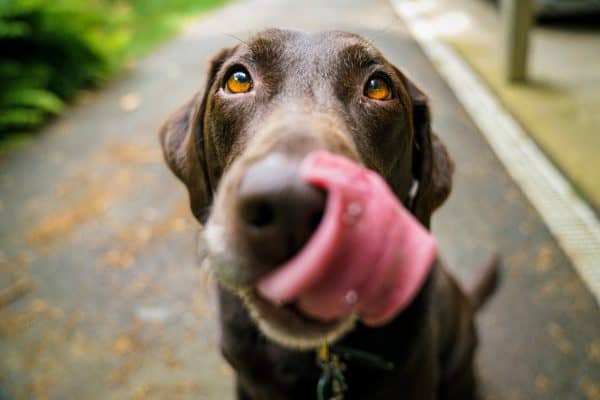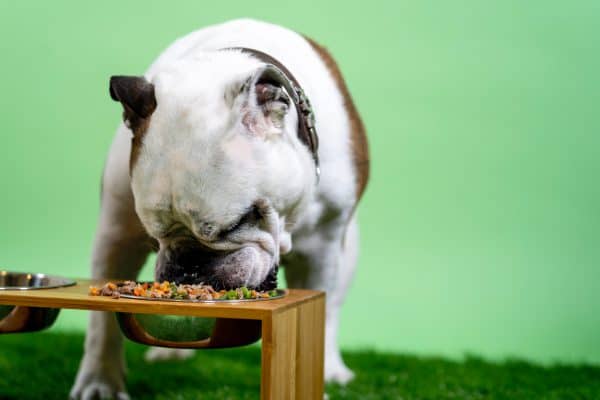If you see your dog eating poop, it is definitely cause for concern. Dogs are well known for their questionable palates. They’re the first to seek out that already licked clean chicken wing from the gutter or to nose around the overflowing trash bin at the park (not to mention each others’ behinds). It seems dogs will eat or try almost anything.
But when a dog starts eating poop (whether his or another dog’s or animal’s) as his favorite snack, most pet owners are ready to draw the line.
Finding the Cause
Your dog eating poop, or Coprophagia as the behavior is known, can have many causes. It can be common in puppies as they explore their new world and try stuff out. Many of them will simply outgrow the habit especially if a pet owner takes the time to discourage it.
If an adult dog is eating poop, however, you want to find out if the cause is health or habit related. To rule out health issues, call your veterinarian. The vet can help determine if there are any underlying health issues that could be the causing the dog’s preference for poop such as malnutrition from the inability to absorb nutrients, poor diet or even hunger. A vet can also check to see if Fido has picked up any fun parasites or other issues from his activities.

Assuming your pup checks out health-wise, there are few other habits related causes that might be the culprit. Your dog could be helping to “tidy” a space. Some dogs see us picking up poop and want to help out. Others might really like the way it tastes (as horrifying as that may be). At Fitdog, we notice that dogs who eat high protein diets (like Ziwi Peak for example) are known to have some really appetizing poop, often referred to as “Golden Nuggets” by the Club Reps. That’s because dogs can smell the undigested proteins, and for them, secondary consumption might taste just as good as eating the food directly. Other times, it could be that it’s a learned behavior that has turned into a bad habit such as biting your nails.
Stopping the Behavior
At Fitdog, we’ve found that dogs who are eating poop are hungry. We suggest providing with a snack at 11am are less likely to eat poop indicating to us that hunger or poor diet is usually to blame.
If the cause is not food related, the best way to stop the behavior is to break the habit by preventing the situation from being available to the dog. In other words: Keep poop away from your dog. Clean it up immediately after he defecates and don’t let him linger in the area. It might be necessary to keep him on a leash in places with other dogs, such as the local dog park or dog runs. If it’s the cat’s poop that he’s after, keep the litter box in an area that he can’t get to but your more limber kitty can.
Also, ensure your dog has plenty of exercise and enriching toys to prevent boredom that could be causing the less than desirable behavior. Try chew toys, puzzle and foraging toys. Take a hike to a new location or a dip at the beach. Distraction can work wonders. A dog behaviorist might also be able to help you identify a management plan tailored to your individual dog’s needs.

Preventing Coprophagia in 3 Steps
As a reminder, if your dog is eating poop, follow these three steps:
1. Seek out the advice of a veterinarian. There could be an underlying health issue that your vet can address.
2. Keep feces out of reach. Clean up the yard if that’s where your dog defecates and keep him on a tight leash if he’s prowling for poop. Out of sight, out of mind.
3. Provide better options. Feed your dog a balanced diet that is nutrient rich and offer plenty of exercise and enrichment options to keep your dog from being bored.
Check out this podcast from American Veterinary Medical Association or the ASPCA for more information on coprophagia and how you can prevent it.
Created June 25, 2014. Updated February 2022.